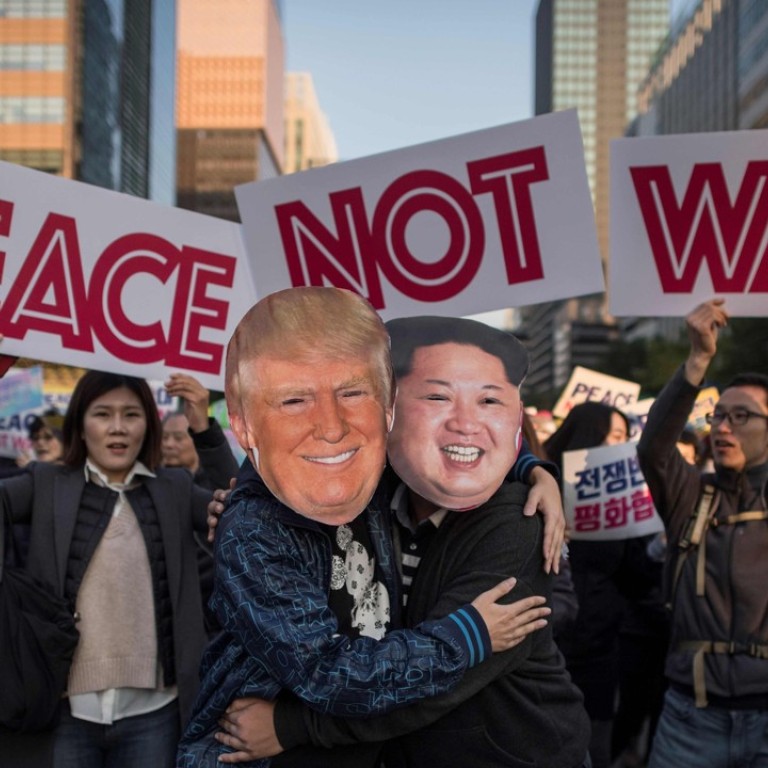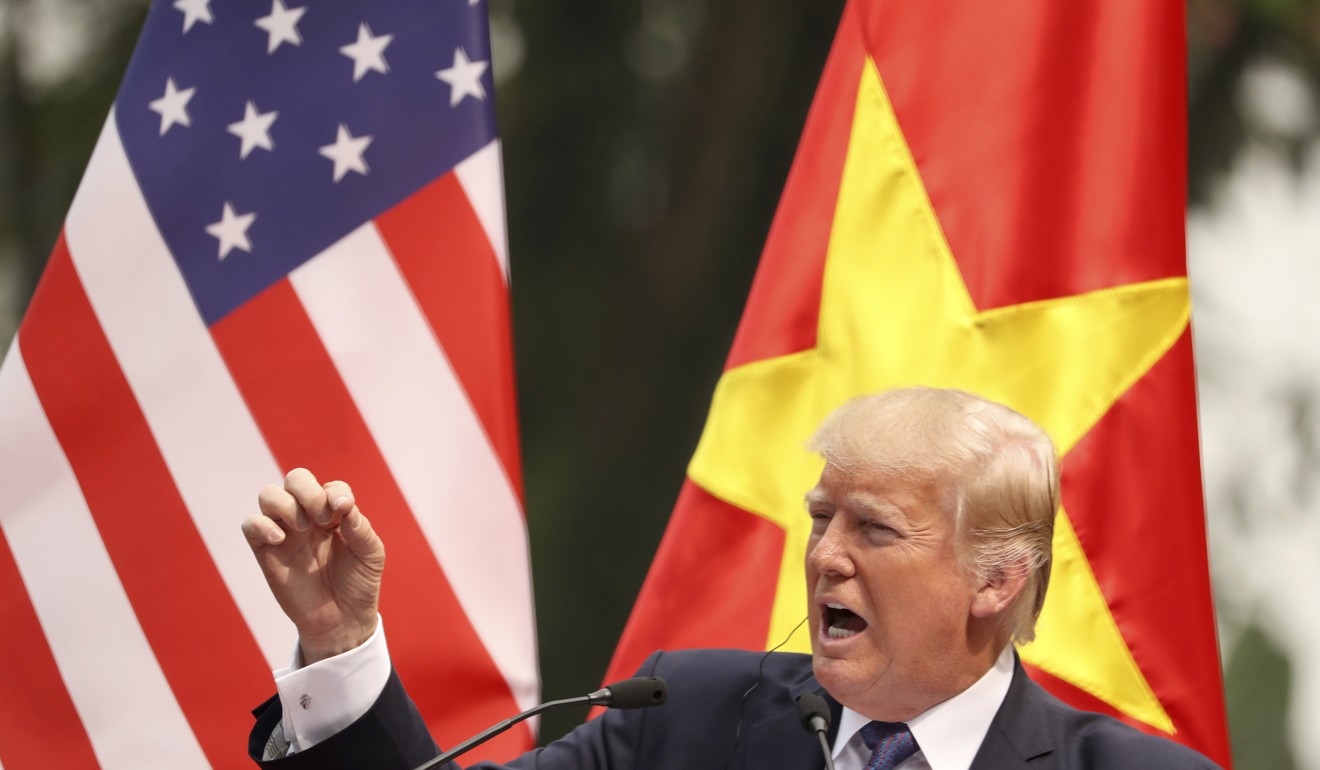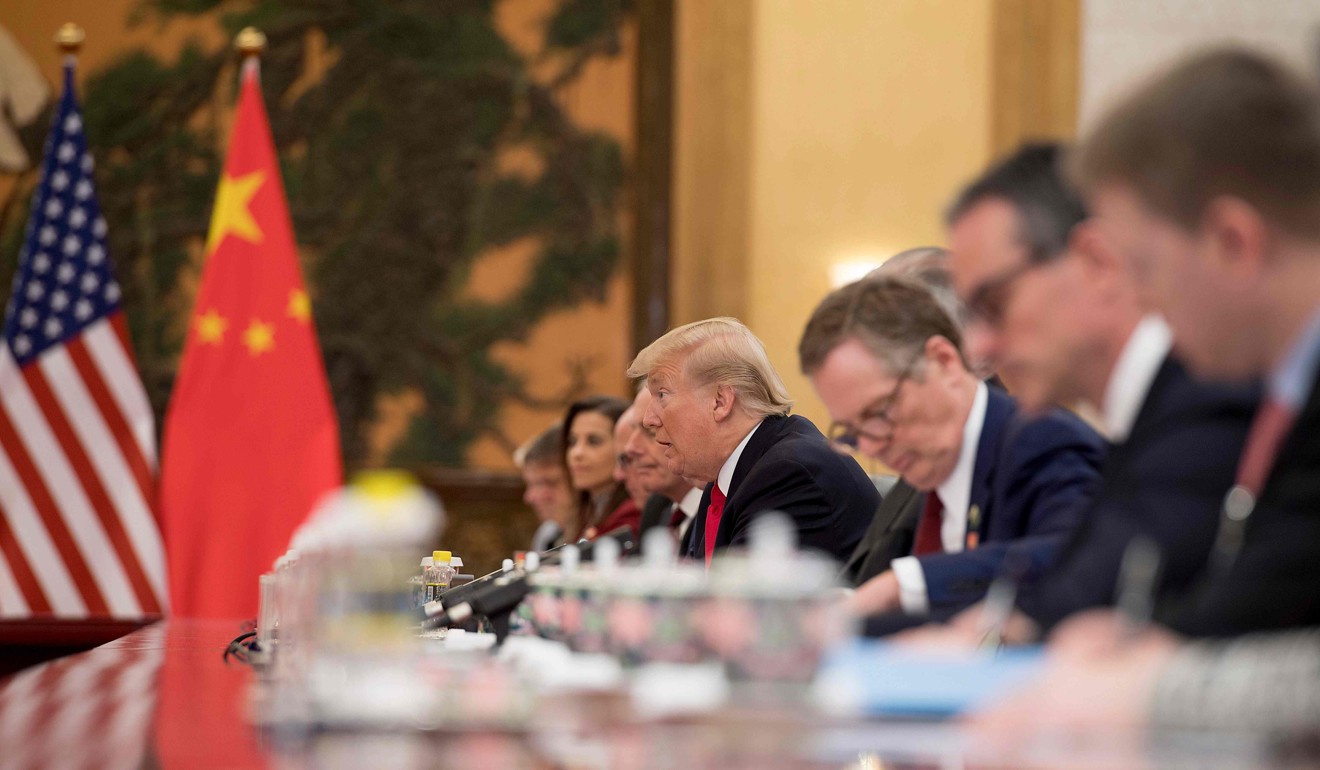
Update | Donald Trump again urges halting North Korea’s nuclear programme through ‘maximum pressure’
US president, speaking after a 12-day tour of Asia, also hinted at punitive measures against America’s trading partners in the region
US President Donald Trump repeated his administration’s goal of removing nuclear weapons from North Korea through a campaign of “maximum pressure” and hinted at punitive measures against trading partners in Asia.
“We have to denuclearise North Korea. We have ended the failed strategy of strategic patience and as a result we have already seen important progress including tough new sanctions from the UN [Security] Council,” Trump said a day after returning from Asia. “We made it clear [in China] that all options remain on the table” to force Pyongyang to end its nuclear weapons programme.”
The hardline comments on North Korea underscored Trump’s top priority on his 12-day trip, during which he put efforts to halt Pyongyang’s nuclear weapons programme on top of his agenda in talks with China’s President Xi Jinping, Japan’s Prime Minister Shinzo Abe and South Korea’s President Moon Jae-in.

Song Tao, the head of the Communist Party’s international liaison department, will visit Pyongyang as a special envoy of President Xi Jinping, the state-run Xinhua news agency reported on Wednesday.
“You do have to ask, in Beijing what did [Trump] finally get? We don’t know everything that was talked about, whether something may have been discussed, and this trip by Song Tao would be a result of some of the things they talked about in Beijing,” Schell said in a panel discussion in New York.
Schell was on the Japan, South Korea and China legs of Trump’s trip, accredited as a writer for Vanity Fair and the Asia Society’s online publication ChinaFile.
Emphasising the goal of denuclearisation multiple times, Trump repeated positions that have caused friction with China, including the expansion of a US missile defence system in South Korea and a rejection of a “freeze-for-freeze” agreement whereby the US would scale back joint military exercises with the country around the Korean peninsula.
“The United States welcomed the decision of Moon to remove the payload restrictions on missiles to combat the North Korean threat and together we reaffirmed our commitment to a campaign of maximum pressure,” Trump said.
The US president added that he was aiming to reduce his country’s “staggering trade deficit with China” and, later in his speech from the White House, threatened “trade action” to cut the country’s trade deficit. At about US$350 billion, China has the largest trade surplus with the US.
Tough talk on the deficit may signal greater confrontation between Trump’s administration and China.
“We will never again turn a blind eye to trading abuses, to cheating, economic aggression or anything else from countries that profess a belief in open trade but do not follow the rules,” said Trump. “We will take every trade action necessary to achieve the fair and reciprocal treatment that the United States has offered the world for decades.”
Bonnie Glaser, a senior adviser for Asia at the Washington-based Centre for Strategic and International Studies, said at the Asia Society panel discussion: “Many people, including the president, continue to talk about what they refer to as China’s predatory trade practices and there are people … who are doing work studying the ways in which China is pursing its economic interests at the expense of the United States.
“I believe we are going to see trade actions by the US against China,” Glaser said.
“We’re going to see something on intellectual property, which is the special 301 investigation that is ongoing. We might see something on steel overcapacity.”

In August, under Trump’s order, US Trade Representative Robert Lighthizer initiated an investigation into China’s intellectual property rights under Section 301 of the US Trade Act of 1974.
The investigation is to “determine whether acts, policies and practices of the Government of China related to technology transfer, intellectual property and innovation are unreasonable or discriminatory and burden or restrict US commerce”, according to a statement from the USTR’s office.
The inquiry could bring tariffs on China if the two sides fail to reach an agreement to solve the dispute after Lighthizer concludes the process and releases the results.
The US Commerce Department has also been conducting an investigation into the impact on national security of foreign imports of steel and aluminium since March, an inquiry that may result in punitive tariffs on imports of the metals from China.
Other comments Trump made in his White House speech referred to commitments with Australia, Japan and India to guarantee navigation rights in the Asia-Pacific region.
“We made it clear [at an Asean summit] that no one owns the ocean,” the president said. “Freedom of navigation and overflight are critical to the security and prosperity of all nations.”

